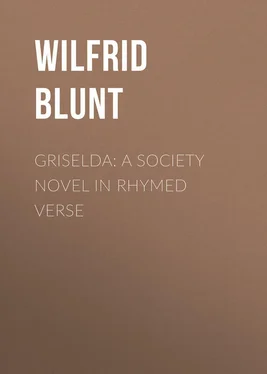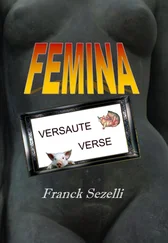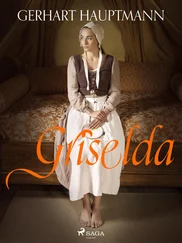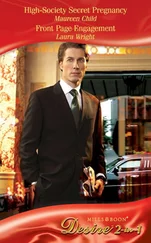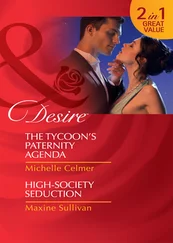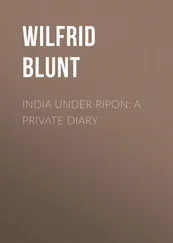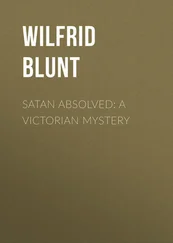Wilfrid Blunt - Griselda - a society novel in rhymed verse
Здесь есть возможность читать онлайн «Wilfrid Blunt - Griselda - a society novel in rhymed verse» — ознакомительный отрывок электронной книги совершенно бесплатно, а после прочтения отрывка купить полную версию. В некоторых случаях можно слушать аудио, скачать через торрент в формате fb2 и присутствует краткое содержание. Жанр: foreign_antique, foreign_prose, foreign_poetry, на английском языке. Описание произведения, (предисловие) а так же отзывы посетителей доступны на портале библиотеки ЛибКат.
- Название:Griselda: a society novel in rhymed verse
- Автор:
- Жанр:
- Год:неизвестен
- ISBN:нет данных
- Рейтинг книги:5 / 5. Голосов: 1
-
Избранное:Добавить в избранное
- Отзывы:
-
Ваша оценка:
- 100
- 1
- 2
- 3
- 4
- 5
Griselda: a society novel in rhymed verse: краткое содержание, описание и аннотация
Предлагаем к чтению аннотацию, описание, краткое содержание или предисловие (зависит от того, что написал сам автор книги «Griselda: a society novel in rhymed verse»). Если вы не нашли необходимую информацию о книге — напишите в комментариях, мы постараемся отыскать её.
Griselda: a society novel in rhymed verse — читать онлайн ознакомительный отрывок
Ниже представлен текст книги, разбитый по страницам. Система сохранения места последней прочитанной страницы, позволяет с удобством читать онлайн бесплатно книгу «Griselda: a society novel in rhymed verse», без необходимости каждый раз заново искать на чём Вы остановились. Поставьте закладку, и сможете в любой момент перейти на страницу, на которой закончили чтение.
Интервал:
Закладка:
Wilfrid Scawen Blunt
Griselda: a society novel in rhymed verse
CHAPTER I
An idle story with an idle moral!
Why do I tell it, at the risk of quarrel
With nobler themes? The world, alas! is so,
And who would gather truth must bend him low,
Nor fear to soil his knees with graveyard ground,
If haply there some flower of truth be found.
For human nature is an earthy fruit,
Mired at the stem and fleshy at the root,
And thrives with folly's mixon best o'erlaid,
Nor less divinely so, when all is said.
Brave lives are lived, and worthy deeds are done
Each virtuous day, 'neath the all-pitying sun;
But these are not the most, perhaps not even
The surest road to our soul's modern heaven.
The best of us are creatures of God's chance
(Call it His grace), which works deliverance;
The rest mere pendulums 'twixt good and ill,
Like soldiers marking time while standing still.
'Tis all their strategy, who have lost faith
In things Divine beyond man's life and death,
Pleasure and pain. Of heaven what know we,
Save as unfit for angels' company,
Say rather hell's? We cling to sins confessed,
And say our prayers still hoping for the best.
We fear old age and ugliness and pain,
And love our lives, nor look to live again.
I do but parable the crowd I know,
The human cattle grazing as they go,
Unheedful of the heavens. Here and there
Some prouder, may be, or less hungry steer
Lifting his face an instant to the sky,
And left behind as the bent herd goes by,
Or stung to a short madness, tossing wild
His horns aloft, and charging the gay field,
Till the fence stops him, and he vanquished too,
Turns to his browsing – lost his Waterloo.
The moral of my tale I leave to others
More bold, who point the finger at their brothers,
And surer know than I which way is best
To virtue's goal, where all of us find rest,
Whether in stern denial of things sweet,
Or yielding timely, lest life lose its feet
And fall the further.
A plain tale is mine
Of naked fact, unconscious of design,
Told of the world in this last century
Of man's (not God's) disgrace, the XIXth. We
Have made it all a little as it is
In our own images and likenesses,
And need the more forgiveness for our sin.
Therefore, my Muse, impatient to begin,
I bid thee fearless forward on thy road:
Steer thou thy honest course 'twixt bad and good.
Know this, in art that thing alone is evil
Which shuns the one plain word that shames the devil.
Tell truth without preamble or excuse,
And all shall be forgiven thee – all, my Muse!
In London then not many years ago
There lived a lady of high fashion, who
For her friends' sake, if any still there be
Who hold her virtues green in memory,
Shall not be further named in this true tale
Than as Griselda or the Lady L.,
Such, if I err not, was the second name
Her parents gave when to the font she came,
And such the initial letter bravely set
On her coach door, beneath the coronet,
Which bore her and her fortunes – bore, alas!
For, as in this sad world all things must pass,
However great and nobly framed and fair:
Griselda, too, is of the things that were.
But while she lived Griselda had no need
Of the world's pity. She was proudly bred
And proudly nurtured. Plenty her full horn
Had fairly emptied out when she was born,
And dowered her with all bounties. She was fair
As only children of the noblest are,
And brave and strong and opulent of health,
Which made her take full pleasure of her wealth.
She had a pitying scorn of little souls
And little bodies, levying heavy tolls
On all the world which was less strong than she.
She used her natural strength most naturally,
And yet with due discretion, so that all
Stood equally in bondage to her thrall.
She was of that high godlike shape and size
Which has authority in all men's eyes:
Her hair was brown, her colour white and red,
Nor idly moved to blush. She held her head
Straight with her back. Her body, from the knee
Tall and clean shaped, like some well-nurtured tree,
Rose finely finished to the finger tips;
She had a noble carriage of the hips,
And that proportionate waist which only art
Dares to divine, harmonious part with part.
But of this more anon, or rather never.
All that the world could vaunt for its endeavour
Was the fair promise of her ankles set
Upon a pair of small high-instepped feet,
In whose behalf, though modestly, God wot,
As any nun, she raised her petticoat
One little inch more high than reason meet
Was for one crossing a well-besomed street.
This was the only tribute she allowed
To human folly and the envious crowd;
Nor for my part would I be found her judge
For her one weakness, nor appear to grudge
What in myself, as surely in the rest,
Bred strange sweet fancies such as feet suggest.
We owe her all too much. This point apart,
Griselda, modesty's own counterpart,
Moved in the sphere of folly like a star,
Aloof and bright and most particular.
By girlish choice and whim of her first will
She had espoused the amiable Lord L.,
A worthy nobleman, in high repute
For wealth and virtue, and her kin to boot;
A silent man, well mannered and well dressed,
Courteous, deliberate, kind, sublimely blessed
With fortune's favours, but without pretence,
Whom manners almost made a man of sense.
In early life he had aspired to fame
In the world of letters by the stratagem
Of a new issue, from his private press,
Of classic bards in senatorial dress,
" In usum Marchionis. " He had spent
Much of his youth upon the Continent,
Purchasing marbles, bronzes, pictures, gems,
In every town from Tiber unto Thames,
And gaining store of curious knowledge too
On divers subjects that the world least knew:
Knowledge uncatalogued, and overlaid
With dust and lumber somewhere in his head.
A slumberous man, in whom the lamp of life
Had never quite been lighted for the strife
And turmoil of the world, but flickered down
In an uncertain twilight of its own,
With an occasional flash, that only made
A deeper shadow for its world of shade.
When he returned to England, all admired
The taste of his collections, and inquired
To whose fair fortunate head the lot should fall
To wear these gems and jewels after all.
But years went by, and still unclaimed they shone,
A snare and stumbling-block to more than one,
Till in his fiftieth year 'twas vaguely said,
Lord L. already had too long delayed.
Be it as it may, he abdicated life
The day he took Griselda to his wife.
And then Griselda loved him. All agreed,
The world's chief sponsors for its social creed,
That, whether poor Lord L. was or was not
The very fool some said and idiot,
Or whether under cloak of dulness crass,
He veiled that sense best suited to his case,
Sparing his wit, as housewives spare their light,
For curtain eloquence and dead of night;
And spite of whispered tales obscurely spread,
Doubting the fortunes of her nuptial bed,
Here at this word all sides agreed to rest:
Griselda did her duty with the best.
Yet, poor Griselda! When in lusty youth
A love-sick boy I stood unformed, uncouth,
And watched with sad and ever jealous eye
The vision of your beauty passing by,
Why was it that that brow inviolate,
That virginal courage yet unscared by fate,
That look the immortal queen and huntress wore
To frightened shepherds' eyes in days of yore
Consoled me thus, and soothed unconsciously,
And stilled my jealous fears I knew not why?
How shall I tell the secret of your soul
Which then I blindly guessed, or how cajole
My boyhood's ancient folly to declare
Now in my wisdom the dear maid you were,
Though such the truth?
Интервал:
Закладка:
Похожие книги на «Griselda: a society novel in rhymed verse»
Представляем Вашему вниманию похожие книги на «Griselda: a society novel in rhymed verse» списком для выбора. Мы отобрали схожую по названию и смыслу литературу в надежде предоставить читателям больше вариантов отыскать новые, интересные, ещё непрочитанные произведения.
Обсуждение, отзывы о книге «Griselda: a society novel in rhymed verse» и просто собственные мнения читателей. Оставьте ваши комментарии, напишите, что Вы думаете о произведении, его смысле или главных героях. Укажите что конкретно понравилось, а что нет, и почему Вы так считаете.
